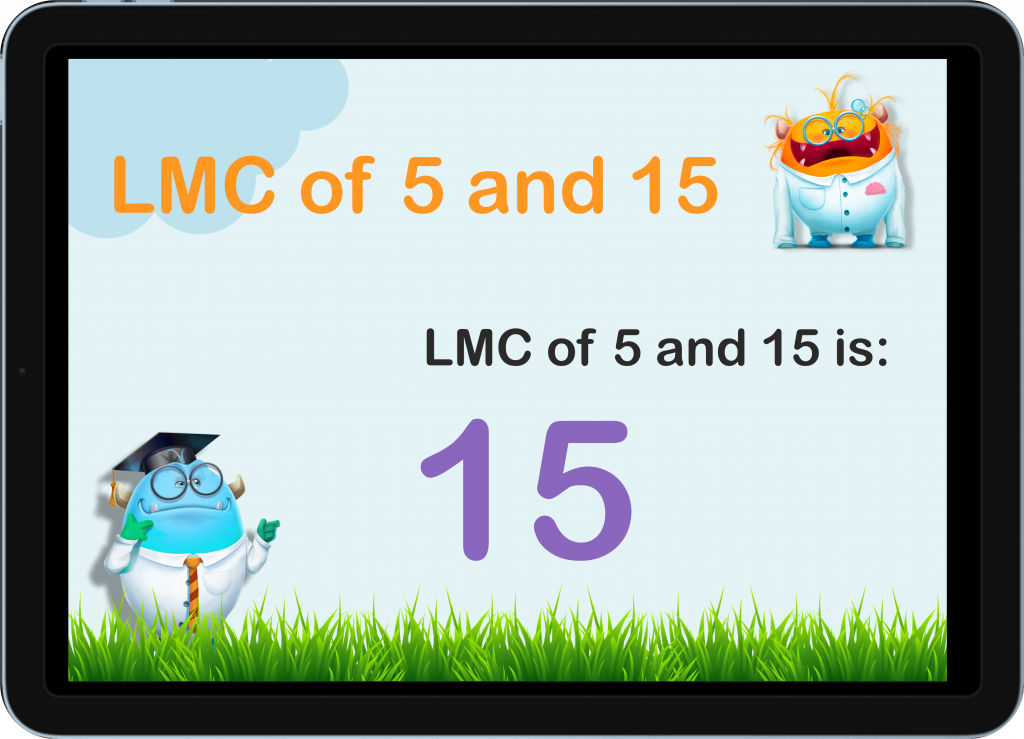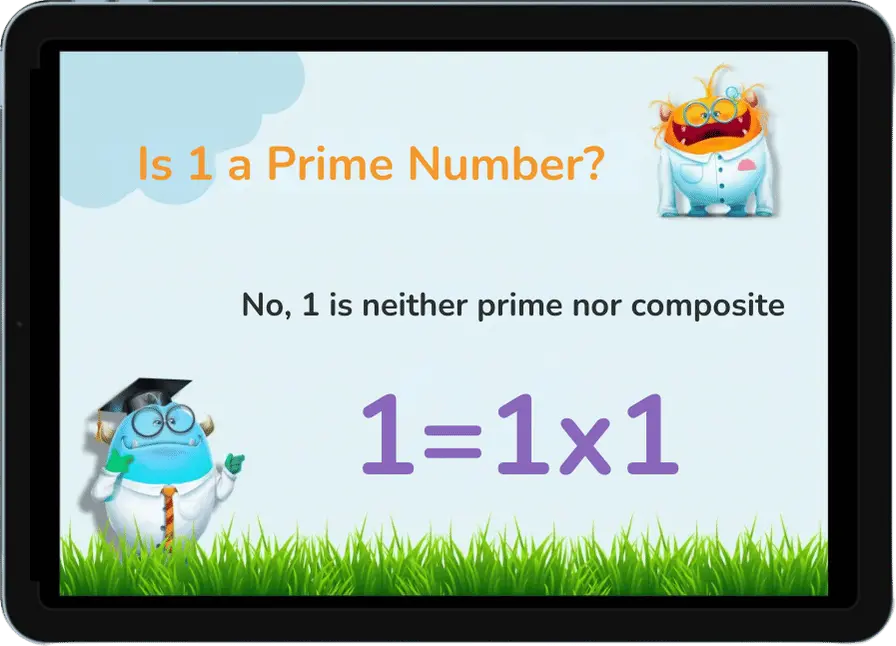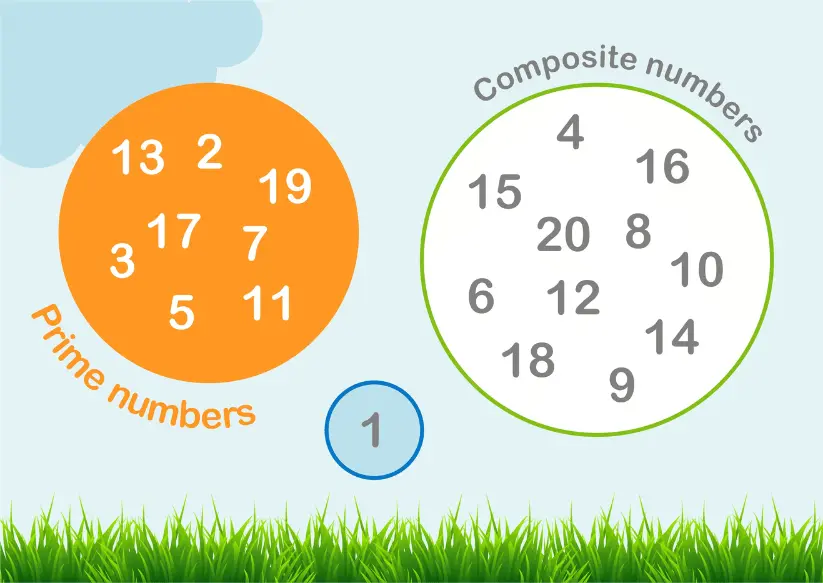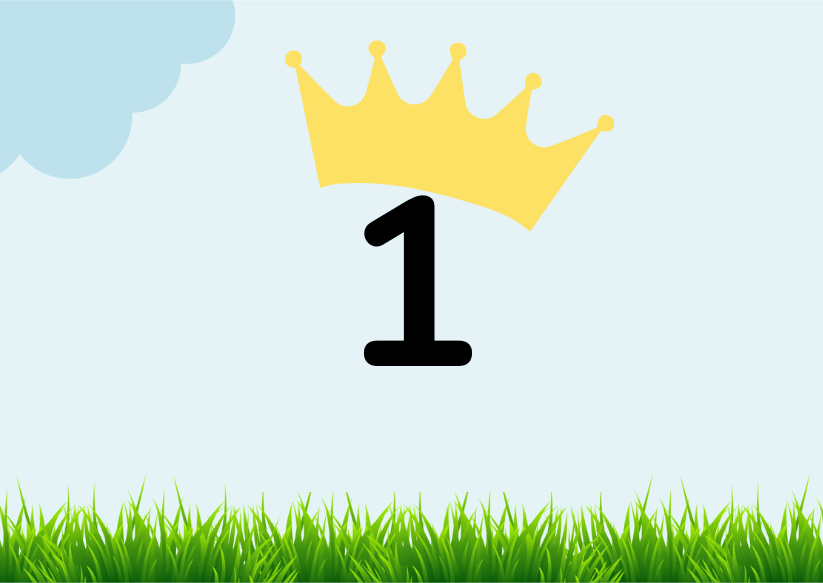Is 2 A Prime Number?
Prime vs. Composite Numbers
Greetings, young math enthusiasts! Today, let’s set sail on a mathematical voyage to determine if 2 is a prime number, and learn more about the difference between prime and composite numbers.

Is 1 a Prime Number?
Or is 1 a Composite Number?
Is 1 a prime or a composite number? Well, it’s neither of both! Let’s dive deeper into the mysteries of number 1, and why it’s hesitant to pick sides. 1,2,3, let’s go!


No credit card required

No credit card required
What Are Prime Numbers?
Is 1 a Prime Number?
Why is 1 Not a Prime Number?
Why is 2 Prime Number and Not 1?
Why do People Think 1 is a Prime Number?
Is 1 a Composite Number?
So, What is 1 If Not a Prime Number?
What’s so Special About the Number 1?
Hey math explorers! Did you know that 1 is a special number because it is the only number that is neither prime nor composite? Today, we are going to find out more about the number 1. Put on your thinking caps, and let’s explore this number mystery together!
What Are Prime Numbers?
Prime numbers are special numbers that can only be divided by 1 and themselves without leaving any leftovers. For example, 2, 3, 5, and 7 are all prime numbers because they can only be divided evenly by number 1 and their own number.
Now that we’ve got the definition down, let’s discover what makes the number 1 so intriguing!
Is 1 a Prime Number?
No, 1 is not a prime number.
This might seem confusing at first because 1 is a very simple number and it’s easy to think it might be prime. However, when we use the definition of prime numbers, we see that 1 doesn’t fit.
Why is 1 Not a Prime Number?
A prime number needs to have exactly two different factors: 1 and itself. The number 1 only has one factor (which is itself), so it doesn’t meet the requirement to be a prime number.
For example, 2 is prime because it has exactly two factors: 1 and 2. The same is true for other prime numbers like 3 (factors are 1 and 3) and 5 (factors are 1 and 5). Since 1 only has one factor, it can’t be classified as prime.
Why is 2 Prime Number and Not 1?
As we said, the number 2 is a prime number because it has exactly two factors: 1 and 2. This makes it the smallest and only even prime number. In contrast, 1 only has one factor, so it doesn’t meet the criteria for being a prime number.
This distinction is important because it helps us understand the definition and properties of prime numbers more clearly.
Why do People Think 1 is a Prime Number?
Some people, when learning about numbers, might initially think that 1, being the first positive integer, would naturally be included with primes. However, when we look at the definition of prime numbers and the criteria they must meet, we see that 1 doesn’t qualify.
However, some people put this up to a debate. They are tempted to think, if prime numbers have two positive divisors, 1 and themselves, than 1 sort of meets the criteria: it’s a double agent. However, while 1 is well, 1 and itself indeed, there’s only one instance of it, not two. So no, it’s not really a prime number.
Is 1 a Composite Number?

No, 1 is not a composite number either. Composite numbers have more than two factors.
For example, 4 is a composite number because it has three factors: 1, 2, and 4. Other examples of composite numbers include 6 (factors are 1, 2, 3, and 6) and 9 (factors are 1, 3, and 9). Since 1 only has one factor, it does not fit the definition of a composite number.
So, What is 1 If Not a Prime Number?
The number 1 is unique. It’s not prime, and it’s not composite. It stands alone in its category. This uniqueness is what makes the number 1 so interesting and special. In mathematics, 1 is often considered the identity number for multiplication because any number multiplied by 1 remains unchanged.
What’s so Special About the Number 1?

1 is a fascinating number for many reasons:
Same in Different Systems
In binary (base 2), base 10 (our usual number system), and Roman Numerals (I), the number 1 is the same. This consistency makes 1 a universal number across different numerical systems.
First in Many Ways
One is the first odd number, the first triangular number (a number that can form an equilateral triangle), square number (a number that is a perfect square), pentagonal number (a number that can form a pentagon), hexagonal number (a number that can form a hexagon), and the first tetrahedral (a number that can form a tetrahedron) and cube number (a number that is a perfect cube). It’s also the first number in the Fibonacci sequence, where each number is the sum of the two preceding ones, starting from 0 and 1.
Unique Identity
One is the only positive integer that is neither prime (which has exactly two factors) nor composite (which has more than two factors). This unique position in the number system gives 1 a special identity.
Go and Share Your Knowledge!
The number 1 is truly special and unique in many ways, making it a fun and interesting number to learn about. Its simplicity and unique properties make it a cornerstone in mathematics, highlighting its importance and special status.
Remember the memory trick: When you share the knowledge you’re much likely to retain it. So, share away, tell your friends about it and keep learning math.
Learn More About Prime Numbers
© 2024 Smartick. All Rights Reserved.
